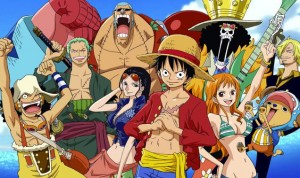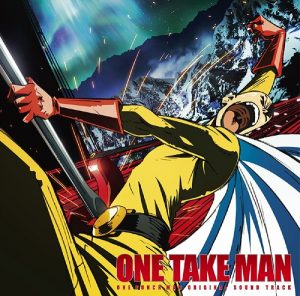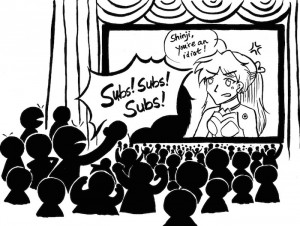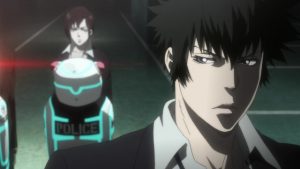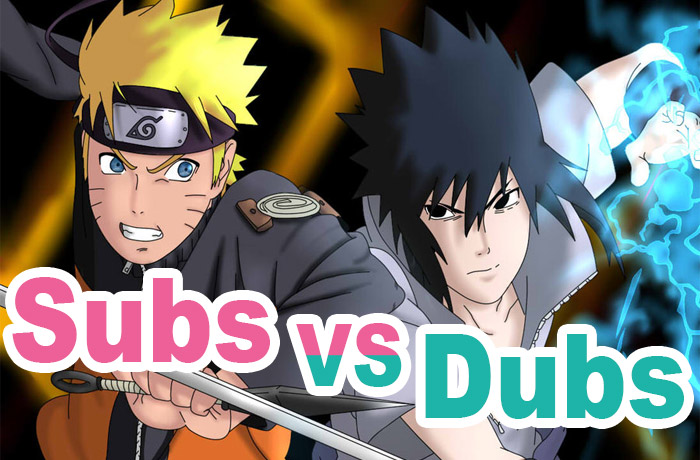
Anyone who watches anime faces a series of questions they ask themselves involving what you can call the ‘diagnostics’, which basically means the elements of the anime to watch based on the visual aspects, auditory aspects, or plot. A lot of the time, people ask their friends whether the art is drawn in a good style, or if the story is interesting enough to keep them hooked.
If an anime is both subbed and dubbed in English, people generally find themselves asking that question, too: “was the subs better or was the dubs better?”. Often times, people outright refuse to watch an anime in dubs, which is understandable for various reasons. However, if you are especially a person who doesn’t watch anime in dubs without giving it at least one try, you should rethink that choice!
When you’re at home scrolling through websites for the anime you want to watch, try watching the dubbed version, if there is any! A lot of the time, you can even predict how an anime will sound dubbed based on the company that produced it! Of course, there are exceptions to that rule, so be sure to keep an eye out for anime that have dubs, and give it a shot!
Part I: Why Subs? I Don’t Even Know the Language!
There’s not much to consider when you’re watching an anime in subs, because you subconsciously know that this is the original intent on how it’s supposed to sound. Not only that, but a lot of Japanese voice actors have a range of voices they can do for the different characters they’re asked to voice. If, for example, a woman voices a male character, she’ll also voice the younger version of himself as well as an older version, thus, showing the flexibility that most English actors can’t execute.
A lot of the time, when you decide to start watching new anime, the voices of the characters suit them incredibly well. It might just be the fact that the script written in Japanese sounds smoother and more in-character than if it was, for example, an English script. There’s multitudes of reasons as to why an anime sounds better in Japanese than in English despite a large number of anime-watchers being English speakers, but one of the main reasons is because Japanese voice acting is so much more natural!
Instead of heightening the emotion in a particular scene and making it sound overdramatic, Japanese voice actors have a kind of intricacy that is laced with the emotions they’re trying to convey.
What You Expect is Not What You Get: Characterisation and Portrayal ft. “Naruto”
As you know, about 98% of all anime are based on manga series, which means in terms of plot, there’s already somewhere for the anime to head towards. Generally, manga series are made into anime when they gain incredible popularity, and it’s a way for editing and publishing companies to further promote the mangaka’s name, as well as the series itself! Funnily enough, if you are following a manga and then you watch the anime, you will either be pleasantly surprised or incredibly angry at the fact that your favourite character’s voice does or does not match them! It’s not really a predicament that causes people to stop watching an anime if they find that the voice of their favourite character isn’t what they expected, because ultimately, the character is still thought to be portrayed correctly, as they are portrayed in the manga.
Known as a large franchise that has been going on for fifteen years, Naruto is an anime that people who don’t even watch anime know of. It set the standard for what anime was and created a foundation for other types of anime to come to fruition. That essentially created anime humour and different genres for other titles. A lot of the time, when people get into anime, they usually start with a shounen like Naruto, in order to create the beginning of immersing themselves in Japanese culture. With a series as old as Naruto that also gained immense popularity in the West, dubbing it in English was an unquestionable thought — of course that would be done. The only problem with this is that the characters speaking an English script, despite the voices being downright similar to the Japanese voices, might completely ruin how certain characters are perceived!
Although Naruto is supposed to be portrayed as annoying, he is also a child that has an incredibly lonely background, since he has no family. When Takeuchi Junko voices Naruto, you understand that he is the underdog and you feel for him deeply, which is how he is portrayed in the manga. However, if you watch Naruto in dubs, and you listen to him speak, you feel heavily annoyed. This isn’t just an issue with characters like Naruto, but even those like Sakura and Neji! Their Japanese voices match the prominent feature of their personalties, and it’s done so tastefully that it hardly feels overdone and you can’t label it as overacting. On the contrary, characters like Kakashi and Sasuke have outstanding voice actors, both in Japanese and in English. Both their actors understand their characters, despite the complexity of their characterisation.
Characters in manga are portrayed a certain way, and subconsciously, you must have some idea of what you think they sound like. However, when these stories are made into anime and you hear their voice, your perception of a character could completely change! Reading the manga for Naruto and witnessing Naruto’s personality as well as Sasuke’s is an entirely different experience from witnessing them in the anime. Characters like Sasuke become more popular, despite the fact that in the manga, you can clearly see how much of a jerk he really is. Of course, people who like complicated characters like Sasuke are not necessarily attempting to understand that type of characterisation, which can also cause a miscommunication in terms of what motivates the character, and thus, affects the way the actor portrays them.
Similarly, characters like Naruto and Sakura are made to sound more cheerful in Japanese, however, in English, people refer to them as ‘annoying’. While that fact may be true for certain characters, watching the subbed version of an anime usually makes it difficult to dislike a character as much as you would if you were to watch the dubbed version. Once people who watch anime with Japanese references in English, the original motives and actions of the characters are somewhat lost in translation!
Culture and Language: Why It’s Important!
It’s an obvious fact that most anime out there are based on Japanese culture, whether it’s pop or old-fashioned. If you know a thing or two about traditions and customs, you’ll also know a thing or two about how language is used in certain contexts! It’s not that difficult to figure out why a language has evolved a certain way, and how that fits in with the customs of a certain group of people, thus creating a whole new set of references that people will learn to understand.
In anime that generally lean more towards utilizing Japanese culture as the basis for its characters’ backgrounds, it’s important to note that it’s meant to create a sense of familiarity for those who share that same type of lifestyle. It’s also interesting to know that for foreigners living in Japan, they understand these references fairly well! The only difference is that this isn’t their primary culture, but rather, one that exists around them everywhere they look, as well as in the back of their minds. Essentially, it’s an entirely different way of living that can only be understood through sets of eyes that know little about cultural intricacies.
Using Naruto as an example, it’s immediately shown that the backgrounds of all the characters are based on Japanese customs. All the food, the jokes, the incredible need to show high spirit and energy comes from a perception of what old Japanese traditions were like. Watching Naruto in Japanese is horrendously much better than watching Naruto in English, specifically because of the fact that voice actors, along with the audience it was originally targeted at, identify completely with the culture as well as language in that context.
Think about it this way: an onigiri with red bean in the middle can be referred to as a “jelly donut” in English dubs, which fundamentally destroys the atmosphere of what was originally intended for the audience to see!
Part II: Why Dubs? I’m More Comfortable with the Original!
Alternatively, a person could outright refuse to watch anime in dubs simply because they are more comfortable with the original Japanese voices. While this is generally a more accepted notion amongst those who watch anime, it is a debate that can be looked at from many angles, some of which seem completely obvious but aren’t. While a lot of anime focuses on themes not usually found in Western animations, there are quite a number of them that aim to create an impression on audiences with different cultural backgrounds, by creating a new threshold for perceiving the world in a different way.
More anime that consist of Westernised ideas are being made nowadays, however, there are only a select few that do a wonderful job at perceiving the story and its characters in such a way that the original intent is not tainted at all. Basically, while you may think that most dubbed anime is absolute piss, it’s important to remember that you probably have seen an anime that centres around Japanese themes and concepts. If you dig a little deeper, you’ll find something much more enriching, in reference to the absence of repetitive plot.
The Wild, Wild West: For Once, You’ll Relate! ft. Fullmetal Alchemist
Out of all incredibly soul-crushing anime, Fullmetal Alchemist is definitely one of the most emotionally crippling ones. Like most anime, it has its highs and lows, but instead of slowly luring you in with the plot, this anime seems to allow plot points to appear when you least expect it. Because of the setting of Fullmetal Alchemist as well as the ethnic backgrounds of the characters, it’s easy to forget that this is originally a Japanese series.
What draws people in to this anime is that the protagonists aren’t Japanese or of Asian ethnicity at all. Although it sounds a little strange, the fact that the protagonists come from a background that is predominantly European automatically makes audience members outside of Japan able to identify more with the characters. Because they’re not of Asian descent, people generally become more interested in the prospect of the story, more so because the plot itself is atypical compared to what Japanese mangakas normally write about.
Although there is mention of Chinese culture, it’s important to note that that is not the focus of the story. Much like the real world, Fullmetal Alchemist is a world that portrays the same diversity that we experience today. The characters who come from different places essentially have their own traditions that they follow in order to live out their lives, and these very traditions actually do play a part in the story. While there are different cultures that have a role in the story, the primary is one that most of us are familiar with, and thus, it makes the plot incredibly Westernised!
It’s incredible because while everyone knows of Naruto, everyone also knows of Fullmetal Alchemist specifically because of the fact that people generally don’t assume that it’s Japanese. Watching this anime in subs is not that different from watching it in dubs, in terms of translation as well as character portrayal. There’s a reason that it’s known to be one of the better dubbed anime out there — it’s because the actors identify more with the culture that has been layered onto the story by the writer.
In the anime, Edward is portrayed as short-tempered, reckless, and tenacious. In both the dubbed and subbed version of the anime, this aspect of his character does not change and in fact, both actors portray him similarly. He is also a character that is selfless and caring, and this is shown various times throughout the anime when he interacts with those he cares most about. Both actors were equally successful in portraying his raw emotions, and if you were to compare the two against each other, they are both natural in their delivery.
Of course, Edward isn’t the only one that is portrayed well in both Japanese and English — characters like Riza, Alphonse, Winry, Roy, and others have been given absolute justice when it comes to the portrayal of their characters. There’s no controversy or favouritism displayed amongst both the author and the audience, which gives each character motivations and aspirations that are different from each other, but equally inspiring.
But I Still Don’t Get It; Which One Is Better?
Taking two anime that are opposites in terms of the portrayal of the world outside our own, there are bound to be issues that arise when you compare them. While Naruto is created from its own unique world with ninjas and a government system that is written to be authoritative from the start, Fullmetal Alchemist is fabricated from a world that is closer to reality, in which many people are deceived and coaxed into trusting something that’s out to destroy them.
Essentially, the governments for both of these anime are a type of oligarchy. The only difference is that in Fullmetal Alchemist, it’s seen as a hindrance and abolished, whereas in Naruto, it’s seen as detrimental, however it’s still encouraged. The basis of these two fictional governments start out by being similar, but by the end of it, you can clearly see that one is more rooted in traditional ideas, while the other encourages new ones.
Although ‘traditional’ is somewhat of a stretch when describing Naruto, it’s important to remember that people who are native English speakers generally do not relate to the story as native Japanese speakers would. Because of the setup of the Naruto universe, it’s easy to see that the characters’ values stem from something that is Asian, whereas Fullmetal Alchemist is more rooted in Western thought and the embracing of new ideas, new concepts, and change.
Asian philosophy entails less about new ideas, and more about accepting things as they are, because with change comes chaos. Alternatively, anime like Fullmetal Alchemist are rooted in change, in new ideas, in expanding from one place into another. This plays a bigger part in subs and dubs more than you may think!
Ultimately, whether or not you want to watch dubs or subs does not matter — however! It’s important to remember that with anime like Naruto in which the customs are primarily Asian, it’s better to watch that in its original Japanese. There are various reasons, of course, as stated above, but mainly it’s that when you watch an anime that is rooted in Asian philosophy, the actors that voice it in Japanese are able to relate to the concepts of the story, which makes it more natural and allows them to stay true to their character.
In that case, subs are better — so that you are not lost in translation. With those like Fullmetal Alchemist, everything about it is fundamentally Western. Not only that, but the era of war that’s shown in the anime is an allusion to WWII. Although you can’t say people ‘identify’ with that, there is a point in time that people can look back to and relate to, when they watch Fullmetal Alchemist. In cases like that, it doesn’t matter whether subs or dubs is better, because surely, the message will be communicated the same way.
When it comes down to it and you are trying to decide which one is better, you can refer to this and think about it in many different contexts. Of course, you may think, ‘it’s just an anime in subs or dubs!’, and while that may be true, think about what kind of impression you’d like the anime to leave on you. In the end, both subs and dubs have their merits as well as their faults, but! There is more to what you or your friends may think about which one ‘sounds better’. Next time you are trying to decide whether to watch something in subs or dubs, try giving both of them a shot!
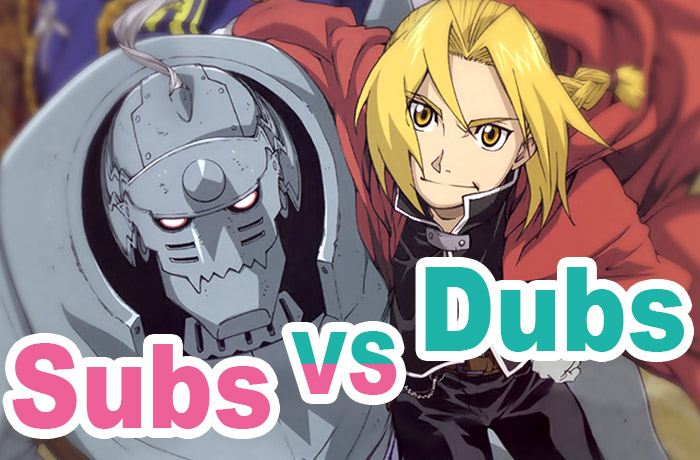
Recommended Post
Top 10 English Dub Anime [Updated Best Recommendations]
Recommended Post
[Editorial Tuesday] English Subtitles Keeping Japanese Terms – Helpful or Problematic?
Recommended Post


